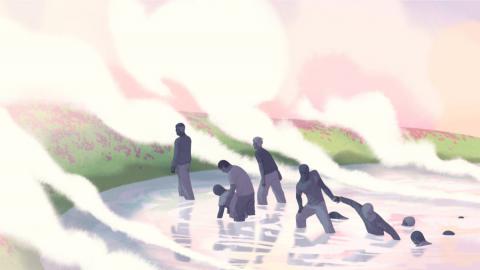Where’s Masculinity Headed? Men’s Groups And Therapists Are Talking

Sean Jin is 31 and says he’d not washed a dish until he was in his sophomore year of college.
“Literally my mom and my grandma would … tell me to stop doing dishes because I’m a man and I shouldn’t be doing dishes.” It was a long time, he says, before he realized their advice and that sensibility were “not OK.”
Now, as part of the Masculinity Action Project, a group of men in Philadelphia who regularly meet to discuss and promote what they see as a healthier masculinity, Jin has been thinking a lot about what men are “supposed to” do and not do.
He joined the peer-led group, he says, because men face real issues like higher rates of suicidethan women and much higher rates of incarceration.
“It’s important to have an understanding of these problems as rooted in an economic crisis and a cultural crisis in which there can be a progressive solution,” Jin says.
Meanwhile, the American Psychological Association published guidelines this year suggesting that therapists consider masculine social norms when working with male clients. Some traditional ideas of masculinity, the group says, “can have negative consequences for the health of boys and men.”
The guidelines quickly became controversial. New York magazine writer Andrew Sullivan wrote that they “pathologize half of humanity,” and National Review writer David French wrote that the American Psychological Association “declares war on ‘traditional masculinity.’ “
Christopher Liang, an associate professor of counseling psychology at Lehigh University and a co-author of the APA guidelines, says they actually grew out of decades of research and clinical experience.
For example, he says, many of the male clients he treats were taught to suppress their feelings, growing up — to engage in violence or to drink, rather than talk. And when they do open up, he says, their range of emotions can be limited.
“Instead of saying, ‘I’m really upset’, they may say, ‘I’m feeling really angry,’ because anger is one of those emotions that men have been allowed to express,” Liang says.
He says he and his colleagues were surprised by the controversy around the guidelines, which were intended for use by psychologists. The APA advisory group is now working on a shorter version for the general public that they hope could be useful to teachers and parents.